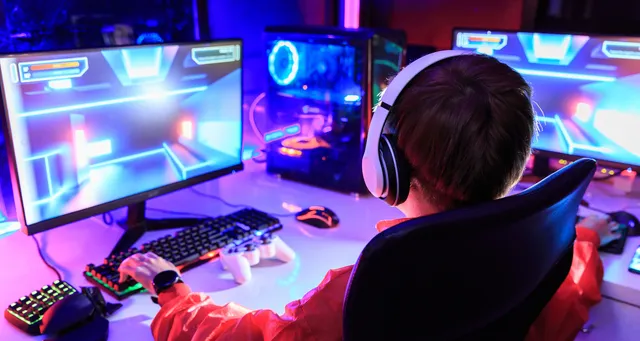Online games play a significant role in helping players develop social skills, thanks to the interactive and collaborative nature of multiplayer games. Here are several ways online gaming contributes to building and enhancing social skills among gamers:
1. Improved Communication Skills
- How it helps: Online multiplayer games require constant communication, whether it’s through voice chat, text, or in-game signals. Players need to coordinate strategies, share information, and support each other to achieve goals. This fosters clear and effective communication, which is useful both in-game and in real-life interactions.
2. Teamwork and Collaboration
- How it helps: Many online games, such as League of Legends, Overwatch, or Fortnite, rely heavily on teamwork. Players must work together to accomplish objectives, which builds skills in collaboration, negotiation, and understanding the strengths and weaknesses of teammates. Learning to function as part of a team translates well into both academic and professional environments.
3. Conflict Resolution
- How it helps: In online games, players sometimes face disagreements or conflicts with teammates or opponents. Navigating these situations requires conflict resolution skills, such as finding common ground, de-escalating tensions, and staying focused on the goal. Gamers learn to handle frustration and work towards a resolution, which improves their emotional intelligence.
4. Building Friendships and Networks
- How it helps: Online gaming provides a platform for people to meet others with similar interests. Players can form friendships, join clans, and become part of communities, building valuable social networks. These connections can extend beyond the game, creating lasting friendships and even professional opportunities.
5. Cultural Awareness and Diversity
- How it helps: Many online games have a global player base, bringing together people from different countries and cultures. Through online interactions, gamers learn to adapt to various cultural norms, communicate across language barriers, and appreciate diversity. This enhances global awareness and helps players become more open-minded and tolerant.
6. Leadership Skills
- How it helps: In team-based online games, players often take on leadership roles, whether formally as a team captain or informally by guiding their group to success. Being a leader in these settings requires decision-making, motivation, and the ability to keep the team focused on the objective. This experience helps develop leadership qualities that are transferable to real-world scenarios.
7. Empathy and Emotional Support
- How it helps: Many online gaming communities are built around mutual support, whether it’s offering advice, cheering on teammates, or helping new players learn the ropes. Gamers can experience empathy by providing emotional support to others during challenging gameplay, and they often become more sensitive to the feelings and perspectives of their peers.
8. Negotiation and Persuasion
- How it helps: In some games, players must negotiate trade deals, persuade others to join their side, or figure out ways to cooperate for mutual benefits. These interactions develop negotiation and persuasion skills, teaching players how to present their ideas persuasively, compromise when necessary, and influence others in a positive manner.
9. Positive Reinforcement and Feedback
- How it helps: Online games often provide feedback, whether through rewards, achievements, or positive comments from teammates. This feedback loop helps build confidence and encourages positive behavior, such as offering praise or constructive criticism to others. It teaches gamers how to give and receive feedback, which is essential for both personal and professional growth.
Conclusion:
Online gaming is more than just entertainment—it’s a valuable tool for developing essential social skills. Through communication, teamwork, conflict resolution, and leadership opportunities, gamers learn to navigate complex social dynamics, interact with diverse individuals, and build meaningful relationships. These experiences foster positive social development that can enhance personal growth and improve real-life social interactions.

